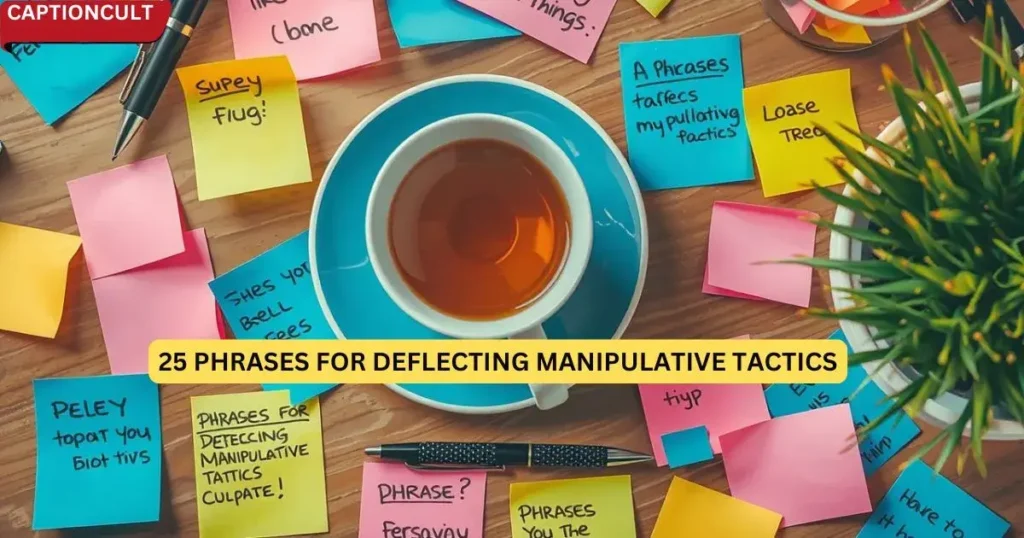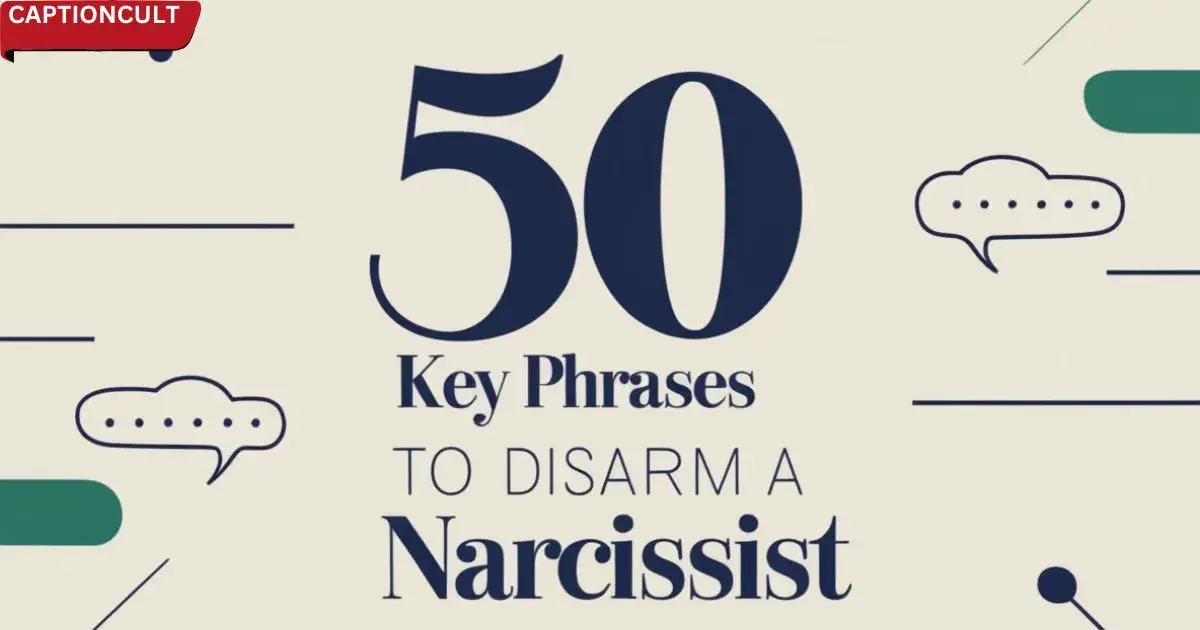Dealing with a narcissist can feel like navigating a minefield. Their manipulative tactics, inflated egos, and lack of empathy can leave you feeling drained, frustrated, and even gaslighted. Understanding narcissism and Narcissistic Personality Disorder (NPD) is the first step, but knowing how to respond effectively is crucial for protecting your mental health and setting healthy boundaries. This article provides you with 50 key phrases to disarm a narcissist, equipping you with the tools to handle these difficult interactions with composure and confidence. Remember, these phrases to disarm a narcissist are not about winning an argument; they’re about safeguarding your emotional well-being and establishing a more constructive dynamic.
This isn’t about making a narcissist “feel bad”; it’s about setting boundaries and protecting yourself from their toxic behavior. We’ll delve into communication strategies that emphasize self-assertion, boundary-setting, and assertiveness, all while maintaining a sense of calm and emotional resilience. Let’s be able to equip you with the 50 phrases to disarm a narcissist you’ll need.
Understanding the Landscape: Narcissistic Communication Styles
Before we dive into the specific phrases to disarm a narcissist, let’s understand the challenges. Narcissists often employ emotional manipulation, aiming to control the conversation and dictate the emotional tone. They might gaslight you, making you question your own perception of reality, or project their insecurities onto you.
They crave admiration, often dismissing or minimizing your feelings and experiences. Their arrogance and need for validation can make any discussion challenging. Therefore, effective responses require a blend of empathy, clear communication, and a healthy dose of patience.
These 50 phrases to disarm a narcissist aim to de-escalate conflict, redirect manipulative tactics, and establish mutual respect. They are tools to help you navigate challenging conversations, emphasizing conflict resolution and compromise without succumbing to their games.
25 Phrases for Deflecting Manipulative Tactics

- “I understand your perspective, but I have a different view.” This acknowledges their input without conceding to their narrative.
- “I’m not sure I understand. Can you clarify?” This forces them to articulate their point more clearly, often exposing inconsistencies.
- “That’s interesting. Tell me more about how you arrived at that conclusion.” This invites them to explain their reasoning, potentially highlighting flaws in their logic.
- “I appreciate your input, but I’ll make my own decision.” This asserts your autonomy while respectfully acknowledging their opinion.
- “I’m choosing not to engage in that discussion.” This sets a clear boundary without directly confronting them. This is one of the powerful 8 key phrases to disarm a narcissist.
- “My feelings are valid, and I deserve to have them acknowledged.” This asserts your emotional validity, pushing back against devaluation.
- “Let’s focus on finding a solution instead of assigning blame.” This redirects the conversation towards constructive problem-solving. This strategy falls under solution-focused communication.
- “I need some time to process this before responding.” This provides a safe escape, preventing impulsive reactions to their provocation.
- “I’m feeling overwhelmed. Can we talk about this later?” This establishes a boundary and prioritizes your emotional wellbeing. This is one of the 20 key phrases to shut down a narcissist.
- “I’m not going to engage in a debate. Let’s agree to disagree.” This sets a clear limit to the conversation’s scope.
- “I respect your opinion, but I disagree.” A simple yet assertive response that respects their viewpoint while expressing your own.
- “I’m not going to engage in a guilt trip. Let’s stick to the facts.” This firmly rejects their manipulative attempts to cause guilt.
- “I’m comfortable with my decision. I don’t need your approval.” This asserts your autonomy and independence. This is a great example of self-assertion.
- “I’m here to discuss [specific topic]. Can we keep it on track?” This redirects the conversation to a more productive path.
- “I’m hearing you say [summarize their point], but I’m still concerned about [your concern].” This shows you listened, yet maintains your perspective.
- “I’m not sure what you mean by that. Could you rephrase?” This politely challenges ambiguity, which narcissists often use.
- “Can we have this conversation again when we’re both calmer?” This prevents escalation during heightened emotions.
- “I need to hear you listen as well as speak.” This calls attention to their lack of reciprocal communication.
- “I’m not interested in a power struggle. Let’s find common ground.” This promotes a more collaborative approach.
- “My feelings are valid, regardless of what you think.” This asserts the importance of your emotional reality.
- “I need space to process this.” Simple, direct, and effective in creating distance.
- “That’s your perception, not necessarily a fact.” A gentle challenge to their subjective reality.
- “I’m not going to participate in this game.” A direct, clear statement when their games become apparent.
- “Let’s focus on solutions, not assigning blame.” This redirects the conversation toward constructive action.
- “I’m not feeling heard. Can we try again, with more focus on mutual understanding?” This addresses the core issue of their communication style.
25 Phrases for Setting Boundaries and Maintaining Composure

- “I need to set a boundary here.” A clear and direct statement establishing your limits.
- “I’m uncomfortable with this conversation. I’m going to end it now.” This assertively ends a difficult interaction. This is one of the 20 key phrases to shut down a narcissist.
- “I’m not going to tolerate this behavior.” This firmly rejects unacceptable actions.
- “I’m not going to argue with you. My decision is final.” This maintains control and prevents unnecessary conflict.
- “This conversation is unproductive. Let’s take a break.” This helps de-escalate a tense situation.
- “I’m choosing to prioritize my well-being.” This puts your needs first, a crucial aspect of self-care.
- “I’m not responsible for your feelings.” This sets a healthy boundary against emotional manipulation.
- “I’m not going to be manipulated into feeling guilty.” A direct challenge to their guilt-tripping tactics.
- “I’m setting my priorities and expectations for this discussion; I hope you can respect that.” This asserts your control over the discussion.
- “I’m going to end this conversation unless we can communicate respectfully.” A clear boundary ensuring respectful interaction.
- “I don’t appreciate being interrupted. Please allow me to finish.” This addresses disrespect toward your communication.
- “I’m ending this discussion; I’m not open to further disagreement on this topic.” A decisive end to an unproductive conversation.
- “I’m not sure that’s the whole picture. Let’s look at alternative perspectives.” This introduces a new perspective to challenge their viewpoint.
- “Let’s try to focus on finding solutions instead of dwelling on blame.” This encourages constructive resolution.
- “I’m taking a step back to gather my thoughts before continuing this discussion.” This demonstrates self-control and clear boundaries. This is one example of a 5 key phrases to disarm a narcissist.
- “I’m not interested in hearing criticism without a suggestion for improvement.” This challenges unproductive criticism.
- “I’m not comfortable discussing this topic anymore. Let’s change the subject.” This gracefully shifts the focus.
- “I’m choosing to focus on positive communication.” This encourages a more supportive dialogue.
- “I’m not responsible for managing your anger.” This pushes back against attempts to burden you with their emotions.
- “I need you to understand my position, even if you don’t agree.” This emphasizes your right to have your perspective heard.
- “I’m not willing to engage in a conflict with you. I’m stepping away.” A direct and assertive way to leave a hostile situation. This is an excellent example of one of the 50 key phrases to disarm a narcissist.
- “I’m going to disengage from this conversation; it’s become unproductive.” This allows you to walk away from a damaging situation.
- “I value our relationship, but I’m not going to tolerate this kind of treatment.” This highlights the importance of mutual respect.
- “I’m creating distance for my emotional well-being.” This puts your mental health as a priority.
- “I’m prioritizing self-care, and that includes protecting myself from negativity.” This is another example of self-care and boundary setting.
10 Additional Phrases for De-escalation and Constructive Dialogue

- “I understand you’re feeling [emotion]. Let’s try to find a way to address this calmly.” This shows empathy while maintaining control.
- “Let’s try to approach this with mutual respect.” This encourages a more positive and collaborative approach. This promotes a healthy conversation.
- “Can we take a break and revisit this discussion later?” This creates space for de-escalation and better communication. This is an example of one of the 20 key phrases to shut down a narcissist.
- “I’m open to discussing this further, but I’m not interested in engaging in insults or attacks.” This sets a clear boundary against toxic behavior.
- “Can we try to communicate without interrupting each other?” This is crucial for ensuring clear communication and mutual respect.
- “Can we find a compromise that works for both of us?” This promotes collaboration and conflict resolution.
- “Let’s focus on finding a solution that benefits everyone.” This encourages a more productive conversation.
- “I appreciate your willingness to listen to my perspective.” This acknowledges any positive contribution, however small.
- “I’m committed to having a productive conversation and resolving this issue. Can we work together on that?” This sets a positive and collaborative tone.
- “I value our relationship, and I’m committed to finding a path to better communication.” This highlights the importance of the relationship while addressing problematic behaviors.
Beyond the Phrases: Additional Tips for Success

These 50 key phrases to disarm a narcissist, along with 20 key phrases to shut down a narcissist, and 8 key phrases to disarm a narcissist, provide a strong foundation. However, several additional strategies can enhance your success:
- Stay Calm: Maintaining your composure is essential. Deep breaths and mindful self-regulation techniques can prevent emotional reactivity. This builds emotional resilience.
- Document Interactions: Keep records of interactions, especially if they’re frequent or escalate. This is valuable if you need to address the behavior later.
- Seek Support: Talk to a trusted friend, family member, or therapist. Sharing your experiences can provide invaluable emotional support.
- Set Boundaries Consistently: Don’t waver on your boundaries. Consistency is key to establishing healthy relationship dynamics.
- Prioritize Your Well-being: Recognize that you are not responsible for the narcissist’s behavior or feelings. Focus on your own emotional health and self-care.
- Understand Your Triggers: Identify situations or behaviors that particularly trigger your reactions. Awareness can help you prepare and develop better strategies.
Frequently Asked Questions
How to disarm a narcissist with words?
Use calm, assertive language to set boundaries and redirect manipulative conversations. Focus on solutions rather than engaging in their drama.
How to respond to a narcissist playing victim?
Acknowledge their feelings without taking responsibility for their actions. Gently remind them of their role in the situation, avoiding direct confrontation.
What is the most important thing to a narcissist?
Maintaining their image and receiving admiration and validation are paramount to their self-perception and actions.
How to talk to a narcissist about their behavior?
Choose a calm moment, use “I” statements to describe your feelings, and focus on the impact of their actions on you. Don’t expect immediate change.
How do you finally outsmart a narcissist?
You don’t “outsmart” them; you protect yourself. Set clear boundaries, limit contact, and prioritize your emotional well-being.
What are the five main habits of a narcissist?
They often exhibit arrogance, entitlement, a need for admiration, a lack of empathy, and manipulative behavior to control others.
Final Thoughts: Empowerment Through Communication
By employing these 50 phrases to disarm a narcissist, and implementing the additional strategies, you can navigate difficult conversations more effectively, protect your emotional health, and establish healthier boundaries. Mastering communication techniques and building emotional resilience are crucial in dealing with narcissistic individuals. The knowledge of phrases to disarm a narcissist empowers you to handle these situations with both confidence and grace.
Phrases to disarm a narcissist are more than defensive mechanisms—they’re declarations of self-respect, tools of emotional intelligence, and pathways to healthier interactions. Remember, the goal isn’t to win arguments but to protect yourself and maintain your well-being.

This is a passionate author whose work explores the power of language and storytelling. With a keen eye for detail and a commitment to excellence, Julian believes that every word has the potential to create meaning and beauty. “Where Words Find Perfection” is a reflection of his dedication to crafting narratives that resonate deeply with readers.

